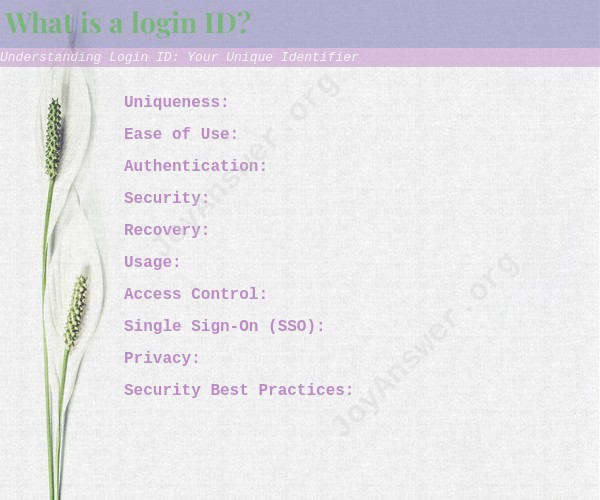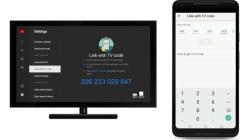What is a login ID?
A login ID, also known as a username or user ID, is a unique alphanumeric identifier used by individuals to gain access to a computer system, a website, an application, or a network. It serves as a means of authentication, allowing users to prove their identity and access their accounts or resources securely. Here's what you need to know about login IDs:
Uniqueness: A login ID is typically unique to each user within a specific system or platform. It distinguishes one user from another, ensuring that each user can access their own account.
Ease of Use: Login IDs are designed to be easy for users to remember and input. They are often created by users themselves during the account registration process or assigned to them by the system.
Authentication: In addition to the login ID, users are typically required to provide a password or other authentication credentials to verify their identity. This combination of a login ID and password enhances security.
Security: It's essential to keep login IDs confidential to prevent unauthorized access to accounts. Sharing login IDs or using easily guessable IDs can compromise security.
Recovery: Many systems offer a password recovery or reset process in case users forget their login ID or password. This often involves verifying other personal information or sending a reset link to a registered email address.
Usage: Login IDs are used in various contexts, including email accounts (email address is often the login ID), online banking, social media platforms, work or school accounts, and more.
Access Control: The use of login IDs enables access control, allowing administrators to grant or restrict access to specific users or groups of users.
Single Sign-On (SSO): In some cases, single sign-on systems allow users to use one login ID and password to access multiple related services or systems without needing separate credentials for each.
Privacy: When creating a login ID, users should consider the privacy implications of the information they choose to include. Some systems may allow users to use pseudonyms or handles instead of real names.
Security Best Practices: To enhance security, it's important to choose strong and unique passwords, enable two-factor authentication (2FA) when available, and regularly update passwords.
In summary, a login ID is a fundamental component of user authentication and access control in digital systems. It helps ensure that only authorized individuals can access specific accounts, services, or resources while providing a user-friendly way to log in. It's crucial to handle login IDs with care and follow best practices for password and account security to protect against unauthorized access.











